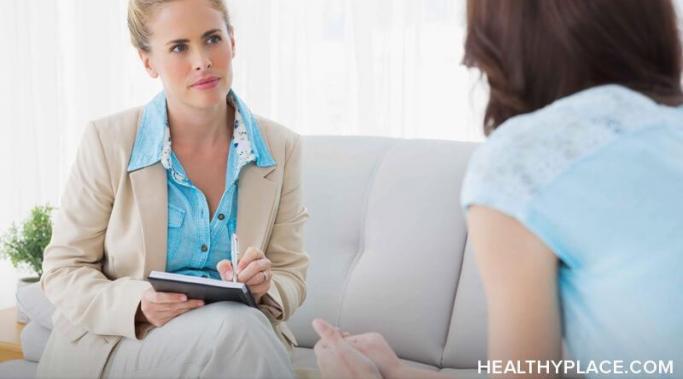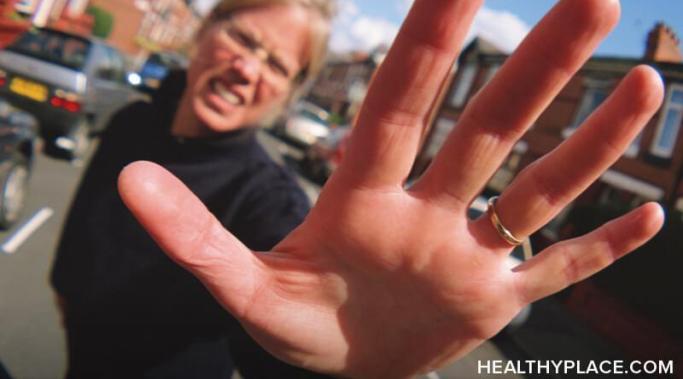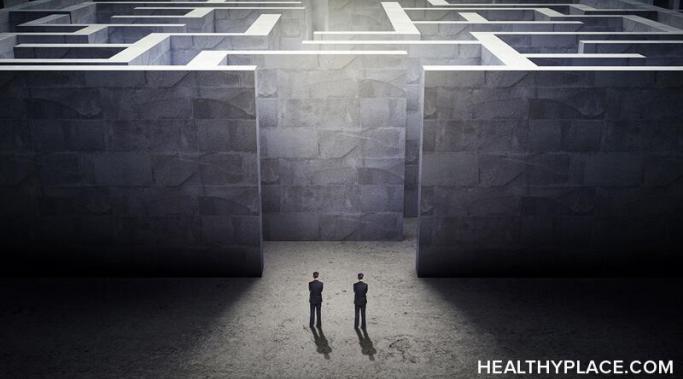People judge how I cope with bipolar. Judging people is an Internet thing and it's a human thing. People just seem to feel free to tell me that how I live my life and how I deal with my bipolar disorder is wrong. I get it, I put myself out there, so that's what happens. Unfortunately, I suspect it happens to a lot of people with bipolar disorder. People just want to judge our bipolar coping skills.
About Natasha
I've found hope is harmful. I know, the reflex is to disagree with this, but, at least in my case, hope is harmful. I recently found a bit of hope of ending a profound, debilitating depression. I knew feeling that hope was a mistake, but some part of my brain refused to listen to that. And sure enough, it turned out that hope was harmful.
Bipolar has a definite effect on one's career. Bipolar can alter a career, derail a career or even, in some cases (like mine), create a career. I have yet to meet a person whose career has not been affected by his or her bipolar disorder.
Rejection just because you have bipolar disorder sucks. Even I, who have been publically bipolar for almost a decade still find it hurtful when someone rejects me because of my bipolar disorder. I know that rejection hurts everyone, but I think many people would be amazed at how hurtful it is to be rejected because of something that isn't your fault and that you can't control. It's like being rejected because of your height or your mother tongue -- these are things that are just part of you and being rejected because of them feels incredibly, personally painful.
I've been considering the idea that suicide attempts are underreported. The theory of this is simple, the only way a suicide attempt gets reported is if a person gets medical help for it and admits to it but how many people have attempted suicide and not gotten medical help for it or have denied that it was a suicide attempt? I know one person -- me. I didn't get help for my suicide attempt. My attempt isn't part of the statistics about suicide attempts in bipolar disorder. So are suicide attempts underreported in general? (Note: This post contains a trigger warning.)
Some people say I'm negative about bipolar disorder. Some people say that calling my bipolar disorder a chronic illness and anticipating the awful effects of bipolar disorder to come is negative. I disagree. I feel that I'm realistic about my own bipolar disorder. Being negative about bipolar disorder is different.
I'm depressed and I'm doing nothing. I think that situation is familiar for many with depression. The secret bit is the "feeling okay about it." That's the hard part. But I know sometimes I have to do nothing when I'm depressed. Here's how I work to not feel bad about it.
Anger can affect bipolar disorder. In fact, the relationship between anger and bipolar disorder is bidirectional: bipolar disorder can affect anger and anger can affect bipolar disorder. As a person with bipolar disorder, I find anger and its effects scary.
Attempting to accomplish big goals when you have bipolar disorder can end very badly. I know this; it has happened to me. But some big tasks must get done. Sometimes we have to move halfway across the country. Sometimes we have a six-month-long project for work. Sometimes we have to raise a child. Big goals don’t go away just because a person has bipolar disorder. So here are some tips I’ve learned on how to accomplish big goals with bipolar disorder.
Bipolar disorder makes me lose days. Whole days lost to a disease of the brain. And when I say “lost,” I mean lost. I mean I can’t find myself during lost days and I can’t find the lost days once they have passed. All I have a recollection of it losing them. Bipolar disorder causes these lost days and I hate it.









